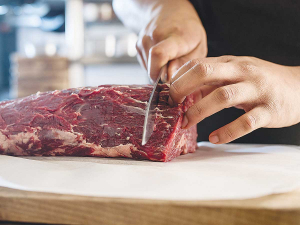Good spring
Despite significant turbulence in global beef markets, pricing for New Zealand beef remains strong and local producers are heading into the spring in a great position, according to Rabobank's latest Global Beef Quarterly report.
Farmgate pricing in New Zealand has remained elevated over the past three months.
This high pricing comes off the back of strong demand from China and suppressed beef export volumes from Australia.
Pricing across both islands is tracking well ahead of last year and currently sits 10% above the five-year average.
Exports rise
New Zealand beef exports for the first half of 2021 were 3% ahead of 2020 volumes.
While volumes to the US and Canada were down 26% and 56% respectively, exports to China rose strongly and were up by 21% on the first six months of last year.
Although volumes were higher, export earnings for the first half of the year were back by 5% as a result of a stronger NZ dollar and greater volume going to lower-value markets. New Zealand beef pricing is expected to remain strong through to November.
We anticipate New Zealand prices will be held up by continued strong demand from the US and China.
Some risk
Downside risks do exist, however, with an easing of wholesale beef prices in the US, higher US cow kill, the end of their summer grilling season and the winding up of stimulus packages all having the potential to adversely impact NZ beef pricing.
Don't cry for Argentina
Government restrictions on Argentinian beef exports are set to have substantial impact on global beef trade over coming months.
The restrictions - imposed by the Argentinian Government in late June with the aim of boosting domestic beef supply - limit Argentinian beef exports to 50% of the average monthly volume exported from July to December 2020.
As Argentina was the fifth largest beef exporter in 2020 and the second largest supplier to China, this cut in export volumes has the potential to have a significant impact on global beef trade.
Limited exports from Argentina - mainly to China - would benefit other beef-exporting nations, primarily neighbouring markets such as Brazil and Uruguay.
At this stage, Argentina's export reduction is having little, if any, direct impact on New Zealand beef exports. However, it could help to provide a pricing-floor in the market.



















